
Monaco, officially the Principality of Monaco, is a sovereign city-state and microstate on the French Riviera a few kilometres west of the Italian region of Liguria, in Western Europe, on the Mediterranean Sea. It is a semi-enclave bordered by France to the north, east and west. The principality is home to 38,682 residents, of whom 9,486 are Monégasque nationals; it is recognised as one of the wealthiest and most expensive places in the world. The official language is French; Monégasque, English and Italian are spoken and understood by many residents.

The House of Orsini is an Italian noble family that was one of the most influential princely families in medieval Italy and Renaissance Rome. Members of the Orsini family include five popes: Stephen II (752–757), Paul I (757–767), Celestine III (1191–1198), Nicholas III (1277–1280), and Benedict XIII (1724–1730). The family also included 34 cardinals, numerous condottieri, and other significant political and religious figures.
The Lion in Winter is a 1966 play by James Goldman, depicting the personal and political conflicts of Henry II of England, his wife Eleanor of Aquitaine, their children and their guests during Christmas 1183. It premiered on Broadway at the Ambassador Theatre on March 3, 1966, starring Robert Preston and Rosemary Harris, who won a Tony Award for her portrayal of Eleanor. It was adapted by Goldman into an Academy Award-winning 1968 film of the same name, starring Peter O'Toole and Katharine Hepburn. The play has been produced numerous times, including Broadway and West End revivals.
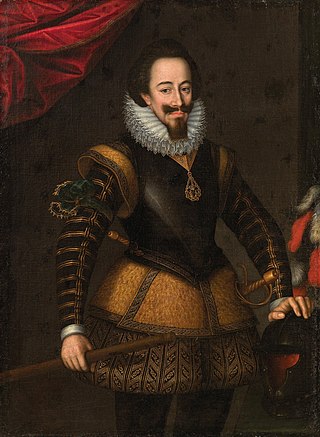
Charles Emmanuel I, known as the Great, was the Duke of Savoy and ruler of the Savoyard states from 30 August 1580 until his death almost 50 years later in 1630, he was the longest reigning Savoyard monarch at the time, only for his record to be surpassed by his great-grandson, Victor Amadeus II. He was nicknamed Testa d'feu for his rashness and military aggression.
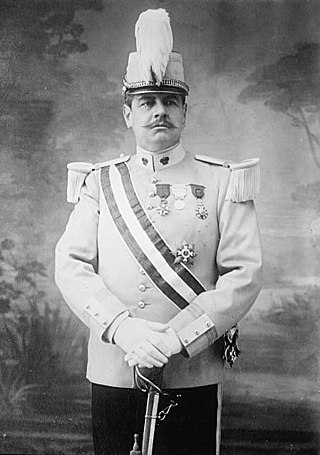
Louis II was Prince of Monaco from 26 June 1922 to 9 May 1949.

Ludovico Maria Sforza, also known as Ludovico il Moro, and called the "arbiter of Italy" by historian Francesco Guicciardini, was an Italian nobleman who ruled as the Duke of Milan from 1494 to 1499.

The Leopard is a novel by Giuseppe Tomasi di Lampedusa that chronicles the changes in Sicilian life and society during the Risorgimento. Published posthumously in 1958 by Feltrinelli, after two rejections by the leading Italian publishing houses Mondadori and Einaudi, it became the top-selling novel in Italian history and is considered one of the most important novels in modern Italian literature. In 1959, it won Italy's highest award for fiction, the Strega Prize. In 2012, The Guardian named it as one of "the 10 best historical novels". The novel was made into an award-winning 1963 film of the same name, directed by Luchino Visconti and starring Burt Lancaster, Claudia Cardinale and Alain Delon.

Princess is a title used by a female member of a monarch's family or by a female ruler. The male equivalent is a prince. Most often, the term has been used for the consort of a prince, or for the daughter of a monarch. A crown princess can be the heiress apparent to the throne or the spouse of the heir apparent.
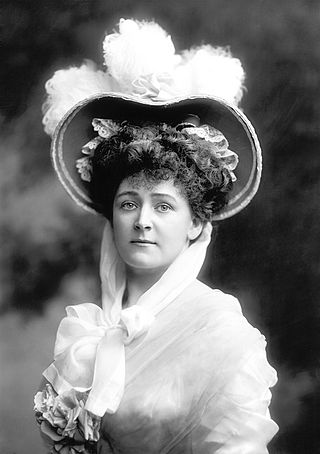
Frances Evelyn "Daisy" Greville, Countess of Warwick was a British socialite and philanthropist. Although embedded in late-Victorian British high society, she was also a campaigning socialist, supporting many schemes to aid the less well-off in education, housing, employment, and pay, and was often known as the "Red Countess". She established colleges for the education of women in agriculture and market gardening, first in Reading, then in Studley. She established a needlework school and employment scheme in Essex as well as using her ancestral homes to host events and schemes for the benefit of her tenants and workers. Greville was a long-term confidant or mistress to the Prince of Wales, who later became King Edward VII.

The First Italian War, or Charles VIII's Italian War, was the opening phase of the Italian Wars. The war pitted Charles VIII of France, who had initial Milanese aid, against the Holy Roman Empire, Spain and an alliance of Italian powers led by Pope Alexander VI, known as the League of Venice.

Beatrice d'Este was Duchess of Bari and Milan by marriage to Ludovico Sforza. She was one of the most important personalities of the time and, despite her short life, she was a major player in Italian politics. A woman of culture, an important patron, a leader in fashion: alongside her illustrious husband she made Milan one of the greatest capitals of the European Renaissance. With her own determination and bellicose nature, she was the soul of the Milanese resistance against the enemy French during the first of the Italian Wars, when her intervention was able to repel the threats of the Duke of Orléans, who was on the verge of conquering Milan.
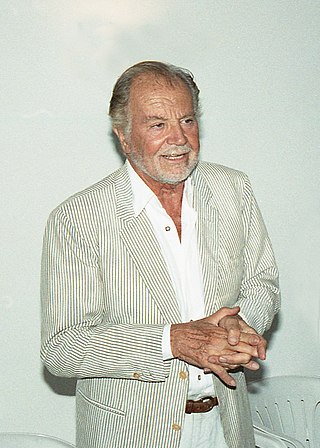
Gabriele Ferzetti was an Italian actor with more than 160 credits across film, television, and stage. His career was at its peak in the 1950s and 1960s.
Saskia Wickham is a British actress best known for playing Alex Wilton in the drama series Boon, and Dr. Erica Matthews in the ITV television drama series Peak Practice between 1996 and 1998.
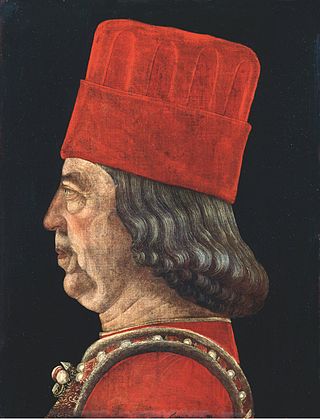
Borso d'Este was the duke of Ferrara the first duke of Modena, which he ruled from 1450 until his death. He was a member of the House of Este.
The Magnetic Lady, or Humours Reconciled is a Caroline-era stage play, the final comedy of Ben Jonson. It was licensed for performance by Sir Henry Herbert, the Master of the Revels, on 12 October 1632, and first published in 1641, in Volume II of the second folio collection of Jonson's works.

The House of Ruspoli is historically one of the great aristocratic families of Rome, but is originally from Florence. Following World War II and the fall of Fascism, the newly established Italian Republic officially abolished titles and hereditary honours in its 1946 Constitution, with the exception of the papal nobility of Rome, as those titles had been created by papal authority.

Henry VIII and his reign have frequently been depicted in art, film, literature, music, opera, plays, and television.

King's Rhapsody is a 1955 British musical film directed by Herbert Wilcox and starring Anna Neagle, Errol Flynn and Patrice Wymore. Wymore was Errol Flynn's wife at the time of filming. It was based on the successful stage musical King's Rhapsody by Ivor Novello.
Anselm Maria Fürst Fugger von Babenhausen was a German nobleman of the Fugger family. He was the first reigning Count of the Principality of Babenhausen, in what is now the Landkreis Unterallgäu.

Patrick Roy Bates, self-styled as Prince Roy of Sealand, was a British pirate radio broadcaster and micronationalist, who founded the self-proclaimed Principality of Sealand.
















